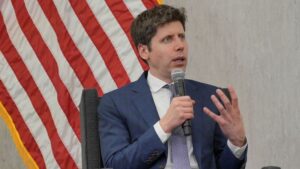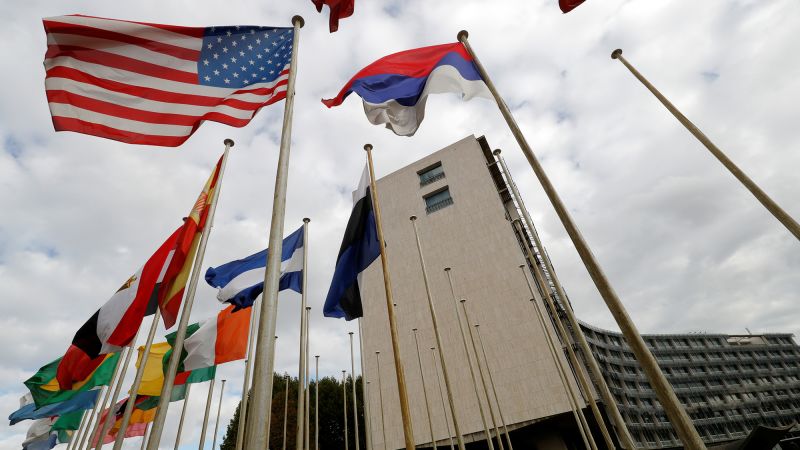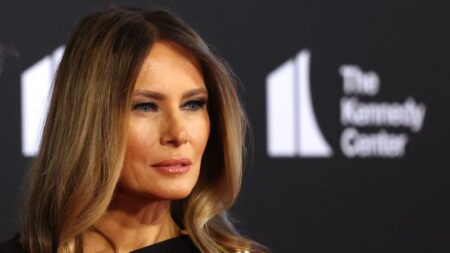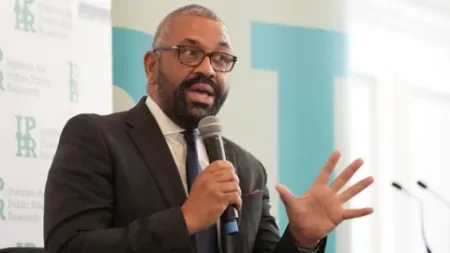In a significant shift in diplomatic policy, President Donald Trump has announced the United States’ withdrawal from the United Nations Educational, Scientific and Cultural Organization, commonly known as UNESCO. This decision, conveyed through a White House spokesperson to CNN, marks a continuation of Trump’s broader strategy to reduce U.S. involvement in various international institutions that he perceives as misaligned with American interests and values.
The rationale behind this withdrawal can be closely tied to the Trump administration’s stance on Diversity, Equity, and Inclusion (DEI) programs, which have become focal points of criticism from Trump and his allies. Anna Kelly, a deputy spokesperson for the White House, articulated the administration’s position by stating that Trump views UNESCO as perpetuating “woke, divisive cultural and social causes.” Kelly emphasized that these initiatives are inconsistent with the “commonsense policies” that she claims reflect the will of the American electorate, particularly following the November elections.
Tammy Bruce, a spokesperson for the State Department, reinforced this viewpoint, asserting that remaining a participant in UNESCO does not serve America’s “national interest.” According to the current timeline, the United States’ formal exit from UNESCO is scheduled to occur on December 31, 2026. This planned withdrawal raises questions about the future role and influence of the U.S. in international cultural, educational, and scientific discourse.
Founded in 1945, UNESCO aims to foster peace through cooperation in education, science, culture, and communication—a mission that is outlined on the organization’s official website. Historically, the United States was one of the founding members of UNESCO but chose to withdraw in 1984. At that time, the departure was motivated by concerns over financial mismanagement and a perceived bias against U.S. interests within the organization.
In a notable turn of events nearly two decades later, in 2003, during the administration of President George W. Bush, the United States rejoined UNESCO. Bush justified this decision by highlighting significant reforms enacted by the organization. However, during Trump’s first term, the U.S. once again withdrew from UNESCO. Yet, under the Biden administration, the U.S. re-engaged with the organization, indicating a fluctuating relationship between UNESCO and American governance.
Following his reelection, President Trump instructed his administration to conduct a thorough review of the U.S. participation in UNESCO, which included investigating allegations of anti-Semitism and anti-Israel sentiment within the organization. Bruce further criticized UNESCO, alleging that it promotes divisive social and cultural agendas while maintaining an excessive focus on the United Nations’ Sustainable Development Goals, which she described as a globalist ideology incompatible with Trump’s “America First” foreign policy philosophy.
A particularly contentious point in Bruce’s criticism concerned UNESCO’s decision to admit “the State of Palestine” as a member state. She labeled this move as problematic, arguing that it contravenes U.S. policy and facilitates the spread of anti-Israel rhetoric within UNESCO.
On the other hand, UNESCO is renowned for several noteworthy achievements, particularly its recognition of World Heritage Sites, which include iconic landmarks such as the Grand Canyon National Park in the United States. This underscores the organization’s role in protecting global cultural heritage and advancing international collaboration in these areas.
Overall, the ramifications of the United States’ withdrawal from UNESCO will likely resonate beyond the immediate political implications. It reflects not only an ideological stance but also a significant reevaluation of the U.S.’s role in global cultural and scientific dialogues as it seeks to redefine its priorities within the international community.











